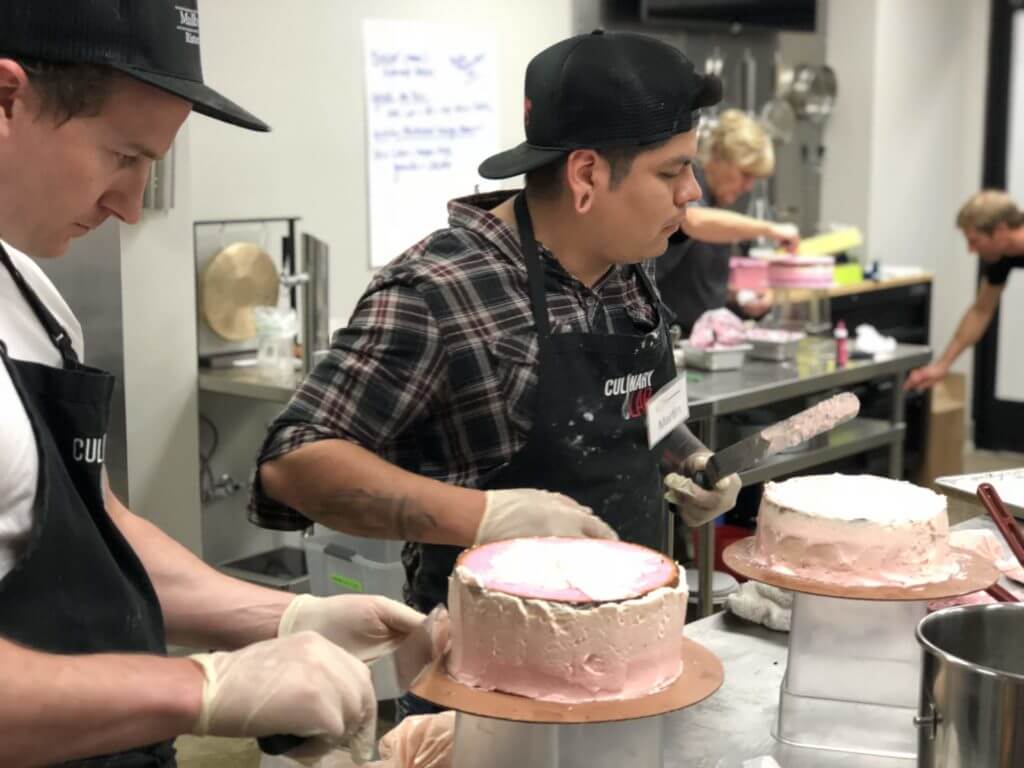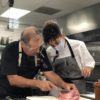7 Tips to Avoid Chef Burnout

Is Being a Chef Stressful?
Yes! A career in the culinary profession is a stressful endeavor that can lead to chef burnout – a real problem in the culinary workplace today. Psychologists define burnout as a syndrome resulting from unmanageable stress, exhaustion and negativism related to one’s job.
This year, the World Health Organization (WHO) recognized the severity of his issue enough to add it to its International Classification of Diseases.
Burnout costs employers millions, if not billions, in revenue every year, and it contributes to a significant amount of employee turnover.
Burnout is especially problematic in professional kitchens where chefs are sometimes expected to work up to 12 hours a day, weekends, and often in harsh working conditions.
How To Reduce Chef Burnout
Executive chefs and restaurant owners who can recognize and stem burnout in their kitchens will reap the advantages of a happier, healthier staff, increased production and added loyalty to the business.
I asked several successful local chefs how they combat stress and burnout in their own lives as well as in their kitchens, and here are seven suggestions they gave:
1. Keep it fun
“You have to enjoy the place where you work,” says Steve Tsirtsis, owner and chef at Citrus City Grille in Orange.
As an owner, he tries to create a fun, clean environment for his cooks and sous chefs. “Keep your people happy. Give them a good place — a clean place — to work so it’s a pleasure to go to work,” he said.
Andrew Litherland, executive chef at Ritz-Carlton Laguna Niguel, says that once the passion is gone, burnout will set it. He advises chefs to keep learning and pushing themselves to get better.
He’s learned how to keep the job fresh. He’s worked in kitchens all over the world, including stints at 10 different Ritz-Carlton resorts. That’s helped him keep his passion for the industry.
“I think when there is burnout, that comes when you lose the passion for it. I have been able to experience a lot throughout my career. … I really don’t get bored or burnt out at my job.”
2. Take time off
Chefs are notorious for working long hours and never taking time off.
Jimmy Olang, corporate executive chef at 24 Carrots Catering and Events in Costa Mesa, forces himself to take Mondays off as a way to refresh. All our chefs rated time off as the top strategy in fighting burnout. They schedule days off for their staff, and for themselves. And they make sure they take a vacation a couple times every year to remove themselves from the slog of the restaurant.
Jo-jo Doyle, executive chef at Honda Center in Anaheim, adds: Don’t spend your free time at the restaurant, sitting at the bar socializing with co-workers. Get out, meet people — outside the “office.”
3. Delegate
This is true in any field. Having a well trained, efficient staff around you will drastically cut your stress.
Chef Doyle says: “Trust your staff. When I was younger, I didn’t think anybody could do anything. I’d want to do everything myself. When you do that, everyone will sit there and watch you working your ass off. Over the years, I’ve learned you’ve got to delegate and mentor and teach.”
4. Work from a list
When problems start to pile up at work, the stress of playing catch-up is sure to follow. Chef Tsirtsis’ advice for chefs is when something breaks down, fix it.
“I get it done right away because if you leave it, you fall behind and things pile up, and you get stressed out and eventually you get burned out,” he said.
To help him deal with problems in his kitchens, Chef Doyle works from a daily to-do list.
“If it needs to be done, do it. Now, my list is never going to go away, but if I knock four things off my list in a day, I’m feeling good about myself,” he said.
5. Don’t work two jobs
In the kitchens I’ve worked in, about half of my co-workers either attended school during the day or had a second job.
Chef Tsirtsis strongly advises against the two-job idea. He understands that because of low pay in the industry, cooks must sometimes draw two paychecks to pay the bills. But this will likely lead to burnout very quickly.
“I would tell them that they need to not try to be a jack-of-all-trades, but a master of one. Having two jobs will not get you out of your debt. Keep one job and be good at it. Advance. Make good money. Two part-time jobs adds up to 60-65 hours a week, and you don’t get the (health) benefits. It’s a problem. You practically work seven days a week,” he said.
6. Balance work and family
For another way to reduce burnout, chefs needs to make sure they spend time with their families.
The chefs I talked to have struggled with this, but said they eventually figured out that family takes their minds off the stress of the job.
Chef Litherland is married with triplet sons. Balancing his job with an equally important family life was a tough task for him. “What I try to do with my family is when it’s time for family, it’s time for them. I focus on them.”
Chef Doyle, who has been married for 20 years and has kids, says it took him a while to figure out how to devote more time to his family.
“If you get the system (at work) built right, it should be able to run itself. The reason why I kind of checked out, my son all of a sudden was turning 13 and I missed a lot of that. I don’t know if it’s worth it.”
7. Take care of your body
Chef Doyle stresses that chefs need to take better care of themselves. Their own health and well-being often falls down the priority list. Chefs will sometimes deal with burnout by drinking more and turning to drugs.
“Of course they turn to it, but that speeds up the process toward burnout,” he said.
Chef Doyle advises his chefs to eat better, get plenty of sleep and hit the gym. According to the Mayo Clinic, exercise boosts your endorphins, reduces tension in your body, and can improve your overall mood.
It Pays to Avoid Chef Burnout
The website Healthgrades.com says stress can become a problem when it goes on too long. Over time, stress can affect your health. You need to recognize the common signs of stress before it leads to burnout and the end of a career, and if needed, make an appointment with your doctor.
Author Bio
After 30 years in the newspaper industry, Orange County native Joe Ardent decided to put down the press pass in favor of a chef coat. Joe was a reporter, editor and page designer at the Orange County Register and The Press-Enterprise in Riverside, CA. He interviewed professional athletes, rock stars, comedians and others during the 1990s and 2000s. In 2018, he set out to pursue his dream in the food industry.










